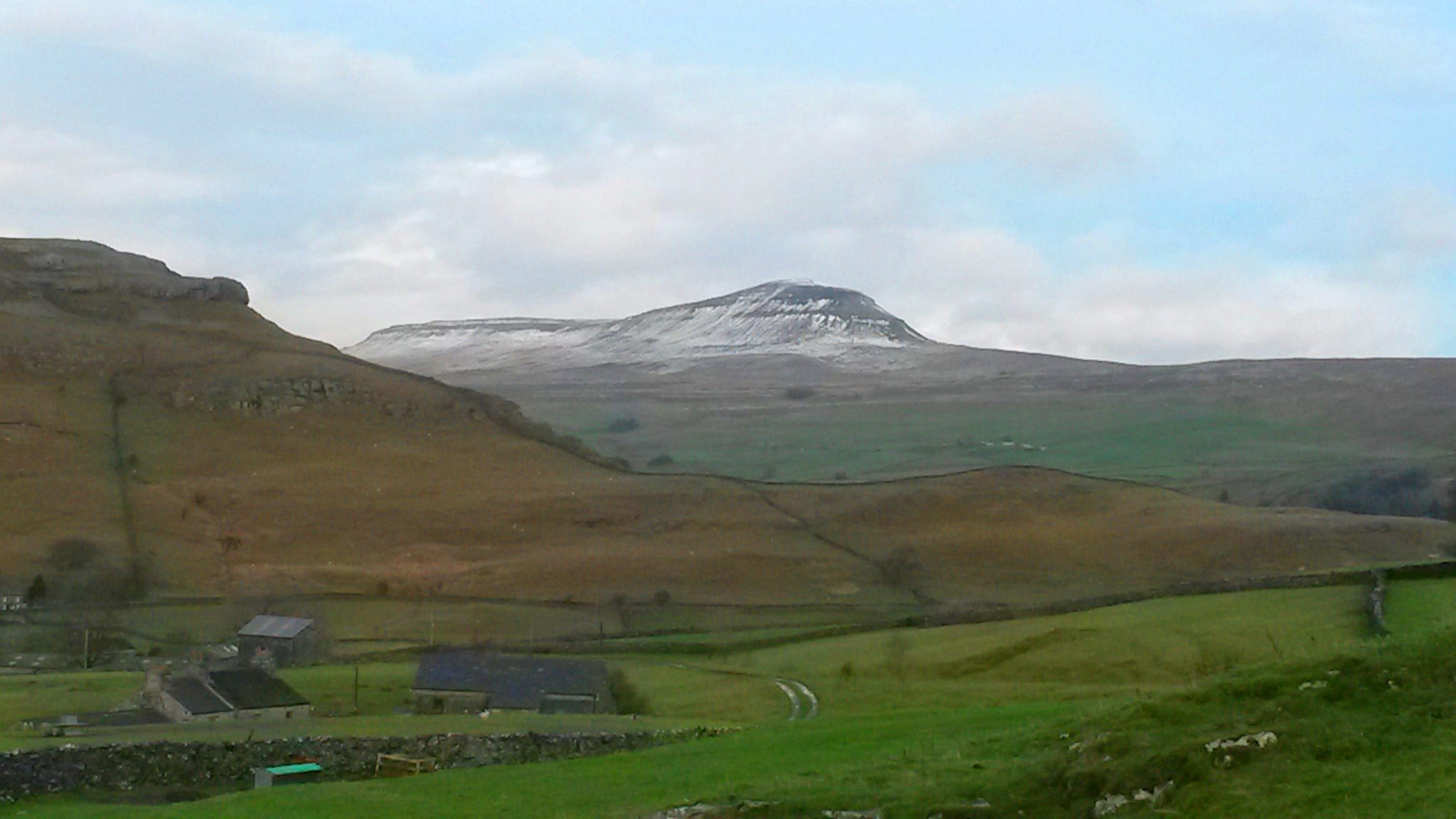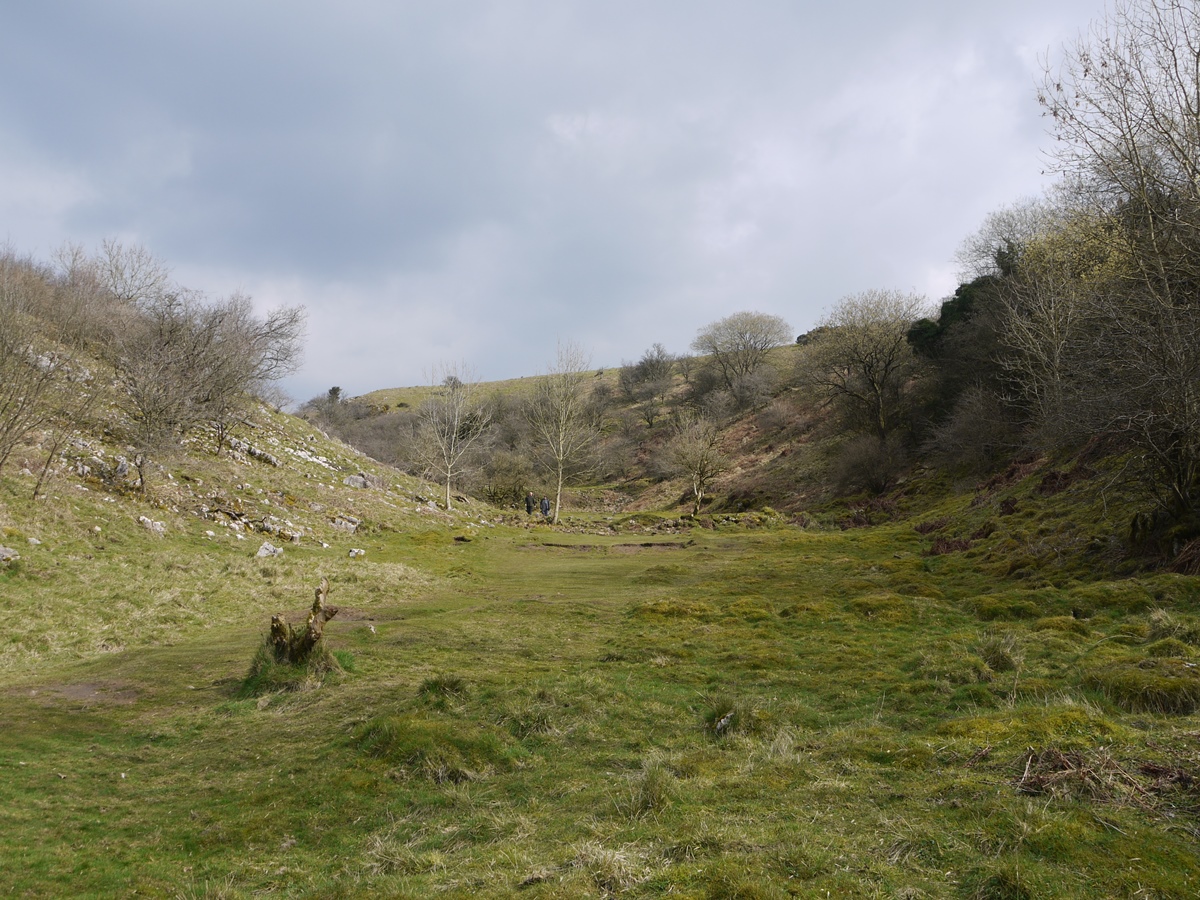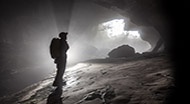
More Press coverage
A publicised visit by two Members of Parliament to Gaping Ghyll was reported here a few days ago. The press release was greeted with much enthusiasm by those cavers keen to see caving accepted as a permitted activity on Open Access land. Two local newspapers have also published the story, The Craven Herald, and the Yorkshire Post. The latter took the opportunity to seek the views of DEFRA on the desires of some cavers to extend rights to Access Land to include exploring caves.
DEFRA’s position restated
A spokesperson from DEFRA said “the Act does not include any rights to use cave systems beneath or within land which is registered under CRoW.”, and that “it has no plans to change the legislation, and any legal opinions supporting a right of access to caves ‘remain just that’ until they have been considered and ruled upon by the courts.”
This reaffirms DEFRA’s stance, which is that it is not obliged to change the view it takes on this matter unless alternative legal opinions have been given due and proper consideration by a court of law. And this presents the CRoW campaigners with a bit of a problem. In order for such views to get such an airing, a legal case will almost certainly have to be presented, challenging a specific cave owner’s right to choose who may or may not visit their cave, and under what conditions.
This is very unlikely to be a cheap option for any caver, or group of cavers, and the same is true of the costs of a judicial review that is being suggested by some at the moment. It is estimated that a judicial review might cost something in the order of £100,000. To put this into perspective, that is approximately the entire income from subscriptions received by the BCA in 2014, and coincidentally also slightly less than the amount of free reserves held by the BCA at the end of 2014, not including the £65,000 that BCA hold in special reserve as potential excess on an insurance claim. Even though this appears to be a daunting prospect, it has not been dismissed as an option.
Court action considered
David Rose, brother of Dinah Rose QC, who has provided her own opinion of why the CRoW legislation has not been applied correctly with regard to caving, would very much prefer the matter to be settled by persuasion and lobbying. However, in his comments on the UK Caving website, David does not rule out the possibility of some legal recourse to obtain the result that he and other CRoW lobbyists are seeking.
Other comments have suggested crowd-funding any legal action that might be considered. Of course, it doesn’t take much imagination to appreciate what many cave owners are likely to think of such a course of action, were it to happen.
Important constitutional issue ignored?
Those who have some misgivings over the CRoW campaign have expressed disquiet over how that campaign is being conducted. The poll of BCA members which gave a mandate to the BCA to campaign for cavers to have the right to explore caves on CRoW land, also created a problem. It was recognised at the time of the poll that no campaign could start until and unless the constitution of the BCA was amended to allow this. The constitution states :
“That the owners and tenants of property containing caves have the right to grant or withhold access.”
This simple statement is at odds with BCA’s mandate to campaign to accept that CRoW legislation has precedence over owners’ rights. Consequently, the poll sent to all BCA members also had a list of other actions that would be required in the event of a “yes” vote. Of these, a critical requirement was that members would be asked to approve a change in clause 4.6 of the constitution to permit any campaign to take place. This has not happened, and is the cause of the disquiet being expressed.
In March 2015, Damian Weare, Secretary, stated on the BCA website that for a number of sensible reasons it had been decided to delay any change to the constitution. Damian’s statement pointed out that delaying the change was not a problem as BCA was not yet in a position to campaign for a change in the law. However, the campaign appears to have started in earnest now, and there are currently no plans in place to bring the constitution in line with what is happening on the ground.
Dave Cooke, BCA council member, has pointed out in online discussions that at the 2015 AGM this necessity to have the important clause 4.6 amended was recognised and the view upheld by the vast majority of those present. It was stated at the meeting in March that “This meeting confirms that the Constitution allows BCA to seek clarification from DEFRA and Natural England on their existing guidance on The CRoW Act and its application to caving.” He continues to point out that it is now apparent, following the lobbying of MPs, that BCA has changed its mind over the degree of adherence to its own rules it is prepared to practice.
Is there a better way to use BCA resources?
It has regularly been stated that cave access problems vary significantly in the different regions of the country. In the northern Dales, for example, there have always been limitations on access to some open fells, which have for many years fallen under a permit scheme managed by the Council of Northern Caving Clubs. A revised interpretation of the CRoW legislation is often cited as the best way to resolve this. However, in Somerset and South Wales, cavers have set up very successful access arrangements over many years with cave owners.
In Wales, a reinterpretation of CRoW as sought by the BCA is seen by many as a threat to excellent cave management processes established over the years. In Somerset, comparatively few caves are under Access Land, but of those, there are several exceptional sites, with very important vulnerable features, that would undoubtedly suffer catastrophically from unfettered access.

Many Somerset cavers see the CRoW campaign as an attempt to impose unnecessary changes to an access environment that works perfectly well, with mutual trust long-established between cavers and owners, and with the best access management in place to protect the caves concerned.
BCA’s 2014 balance sheet shows that only a trifling £323 was spent on matters relating to Conservation and Access. And that BCA’s surplus of income over expenditure was almost £6100. The cost of the CRoW ballot alone was in excess of £5000.
If matters of access are of such importance to British cavers, would it not make a great deal more sense to use some of the healthy surplus income that BCA receives to assist with the setting up and administration via regional councils, of local access forums, that can make their own best judgement in the caving region that they are familiar with? If Somerset cavers wish to concentrate on fostering better relations with Mendip farmers, and Welsh cavers would like to set up contact with National Park bodies and the like, then would that not make better sense than to attempt a one size fits all legal solution for the whole country, regardless of local preferences? How such forums might operate would depend entirely on local circumstances, of course. And would it not be best use of our money – the BCA’s income – to guide and direct each region towards an efficient and pragmatic process of access management?
The huge amount of debate over access that has been engendered by the CRoW debate surely demonstrates that there would be no shortage of keen cavers happy to get involved at a local level. This would ensure that the best access arrangements possible are put in place for their fellow cavers for many years to come.
